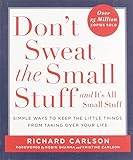Suitable for members of Alcoholics Anonymous, Al-anon, Alateen, ACOA, Naranon, Narcotics Anonymous, Gamblers Anonymous and anybody in recovery through a 12-Step fellowship.
The Lord is my sponsor, I shall not want.
He makes me to go to many meetings.
He leads me to sit back, relax, and listen with an open mind, He restores my soul, my sanity, and my health.
He leads me in the path of sobriety, serenity, and fellowship for my own sake.
He teaches me to think, to take it easy, to live and let live, and do first things first.
He makes me more humble and grateful.
He teaches me to accept the things I cannot change, to change the things I can and gives me the wisdom to know the difference.
Yea, though I walk through the valley of despair, frustration, guilt, and remorse, I will fear no evil.
For Thou are with me, your program, your way of life, your twelve steps, they comfort me.
You prepare a table before me in the presence of my enemies: rationalization. fear, anxiety, self-pity, resentment.
You anoint my confused mind and jangled nerves with knowledge, understanding and hope.
No longer am I alone, neither am I afraid, nor sicken, nor helpless, nor hopeless.
My cups runs over,
Surely sobriety and serenity shall follow me every day of my life, one day at a time, twenty-four hours at a time.
As I surrender my will to You and carry Your message to others, I will dwell in the house of Higher Power, as I understand him, one day at a time, forever and ever.
Amen
--Author Unknown


 Affirmations for the Inner Child
Affirmations for the Inner Child Codependent No More: How to Stop Controlling Others and Start Caring for Yourself
Codependent No More: How to Stop Controlling Others and Start Caring for Yourself




